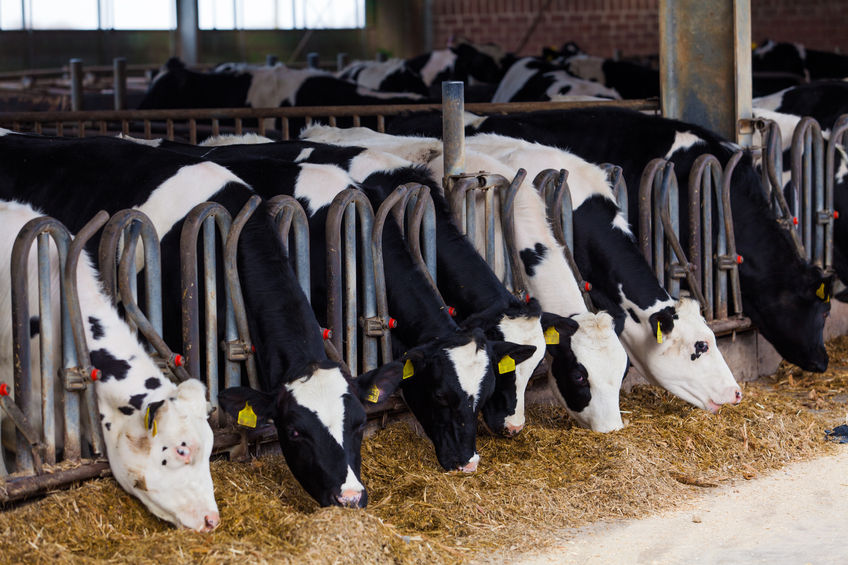
UK farmers have said Irish fodder aid schemes add to concerns over the impact months of wet weather are having on fodder supplies and prices.
Diminishing fodder supplies in the Republic of Ireland led the Irish Government to introduce a fodder transport subsidy scheme in January, with payments of between €3 and €17 per bale transported, depending on size.
Meanwhile, dairy processors in the republic, which were previously sourcing fodder on the domestic Irish market on behalf of their milk suppliers, have switched to sourcing from mainland UK, with the first Dairygold subsidised shipment totalling 2,500 tonnes having arrived at Rosslare port on Thursday (April 5), and more loads due to follow in the coming days.
The 2013 Irish fodder crisis saw the importation of some 10,000 tonnes of fodder into Ireland, mainly from the UK.
Dai Miles, Farmers' Union of Wales (FUW) Milk and Dairy Committee Chairman, said the persistent wet weather has left many fields in Wales "completely saturated" for months, and grass growth remains "extremely poor" across the country.
He said that the removal of fodder from the UK market through the Irish schemes would add to existing pressures on the UK market.
“We fully sympathise with Irish farmers regarding the pressures they are under, but with prices already extremely high in the UK and pressures mounting in parts of Wales, the impact of the Irish schemes for our members is naturally a concern,” he added.
“Above all else, farmers in Wales need to see a dramatic improvement in the weather. Otherwise, we will have to urgently consider schemes similar to those operating in the Republic of Ireland.”
'Diminishing supplies'
Farmers are becoming increasingly concerned about the recent cold weather which in turn has put a pressure on fodder supplies.
Farmers across the country have experienced one of the wettest winters following persistent rainfall which has made conditions difficult.
A period of low temperatures have also been a contributory factor to slow growing conditions for grass.
The cold winter followed by a late spring has resulted in lower than average grass covers across many farms.
Mr Miles added: “Many of our members are unable to turn cattle out onto the land and this means an increasing reliance on diminishing fodder supplies as cattle remain housed.”
“We alerted the Welsh Government to concerns about the impact of fodder shortages many weeks ago, and reports of acute problems in some regions are increasing.”
Ulster Farmers' Union President Barclay Bell said soil has been at saturation point and as a result there were "real difficulties" in doing field work.
